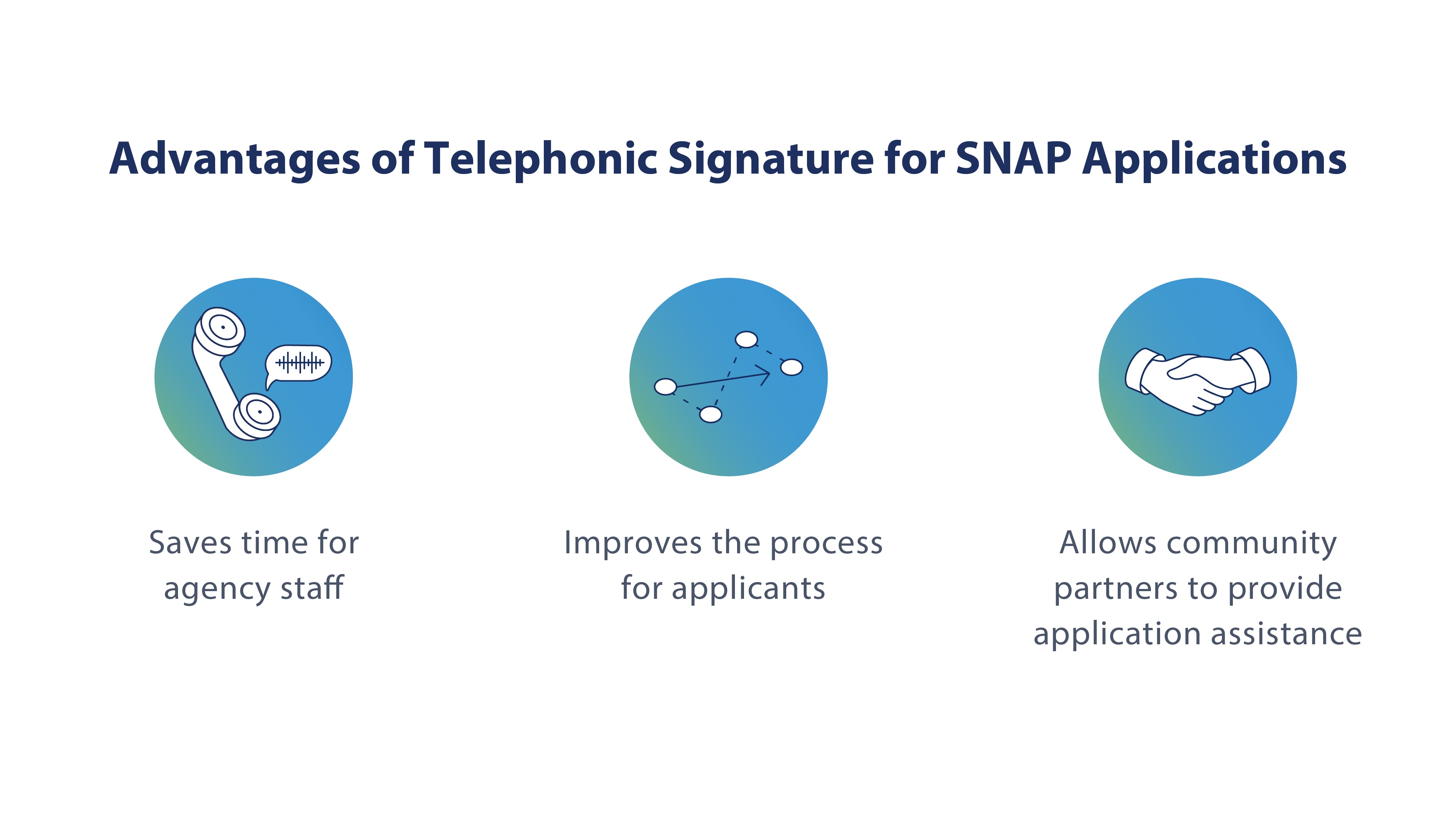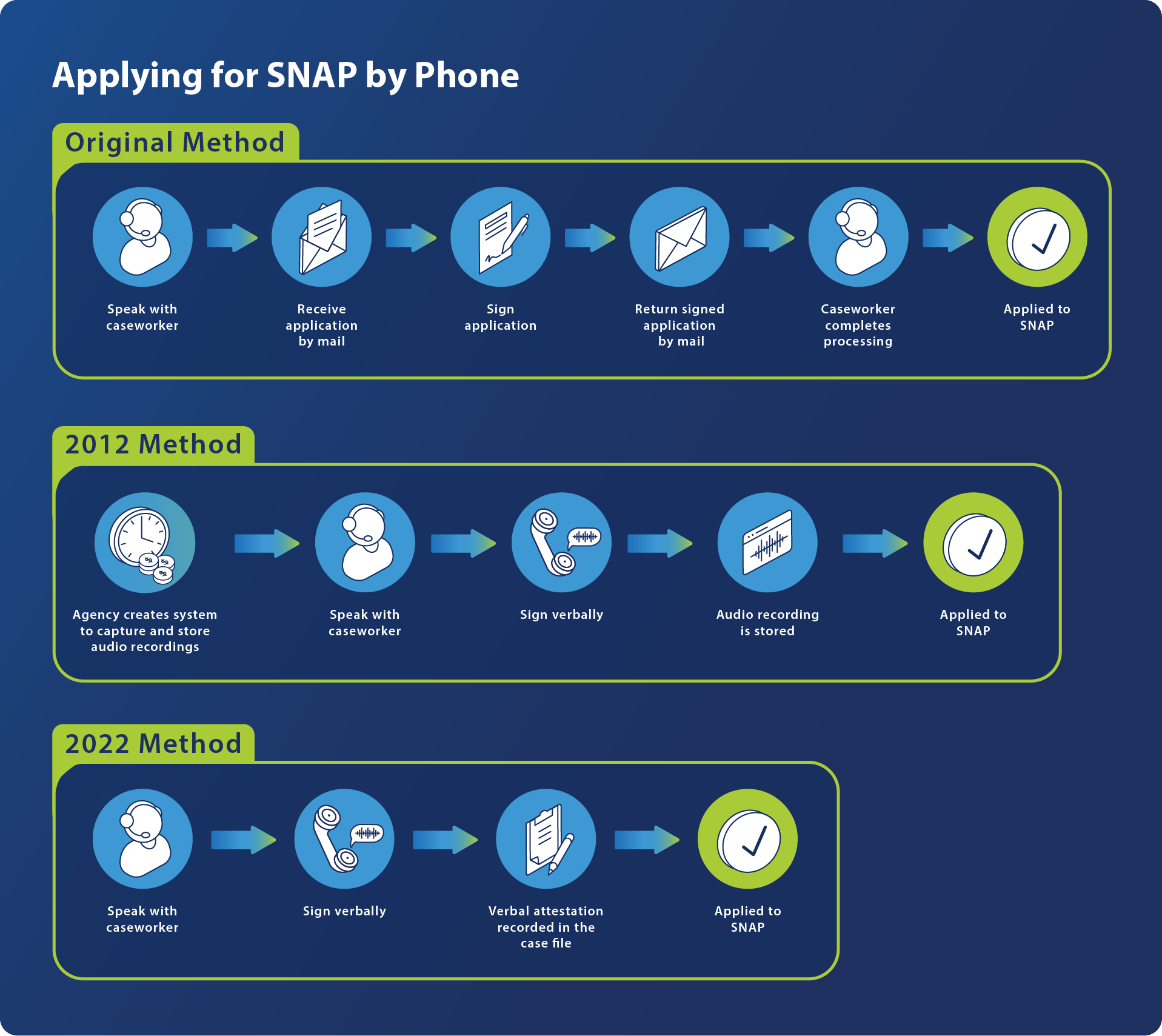Applying for SNAP by phone is an important pathway for many low-income families. BDT’s Telephonic Signature Cohort brings together agencies from six states to establish or improve their methods for collecting and documenting signatures on applications submitted by phone for the Supplemental Nutrition Assistance Program (SNAP).
With funding from the Bill & Melinda Gates Foundation and the Families and Workers Fund, BDT’s Policy Team is supporting six agencies in 2024 to simplify the SNAP application process for families and individuals and for community-based organizations that assist state agencies in screening and enrolling applicants by phone. The simplified process will help agencies reduce staff workload.
“Speeding up any part of the application process helps reduce the waiting and processing times required before eligible people begin receiving nutrition benefits.”
What is Telephonic Signature?
Telephonic signature or “telesig” allows for applications to be signed over the phone through verbal attestation. This eliminates the need for agency staff to mail a paper application to an applicant for them to sign and return – saving both time and work for agency staff and applicants.

How Telephonic Signature Evolved
Federal guidance issued in 2022 has led to an easier and lower-cost way of implementing telephonic signature. In August 2022, the U.S. Department of Agriculture (USDA) issued guidance on a waiver allowing simple case documentation – or writing a note in a SNAP participant’s case – to record a telephonic signature. The previous method required agencies to store an audio recording of the applicant’s verbal attestation.

Participating State Agencies
- Illinois Department of Human Services
- Iowa Department of Health and Human Services
- Minnesota Department of Human Services
- Oklahoma Human Services
- Tennessee Department of Human Services
- Vermont Department for Children & Families, Economic Services Division
Link Between SNAP and Medicaid
In addition to telephonic signatures for SNAP applications, the cohort will explore using SNAP enrollment data to streamline Medicaid renewals, a practice that can have significant impact on enabling people who remain eligible for Medicaid to maintain healthcare benefits.
Learn More
To learn more about BDT’s policy expertise, contact Ki`i Kimhan Powell at KPowell@BDTrust.org
